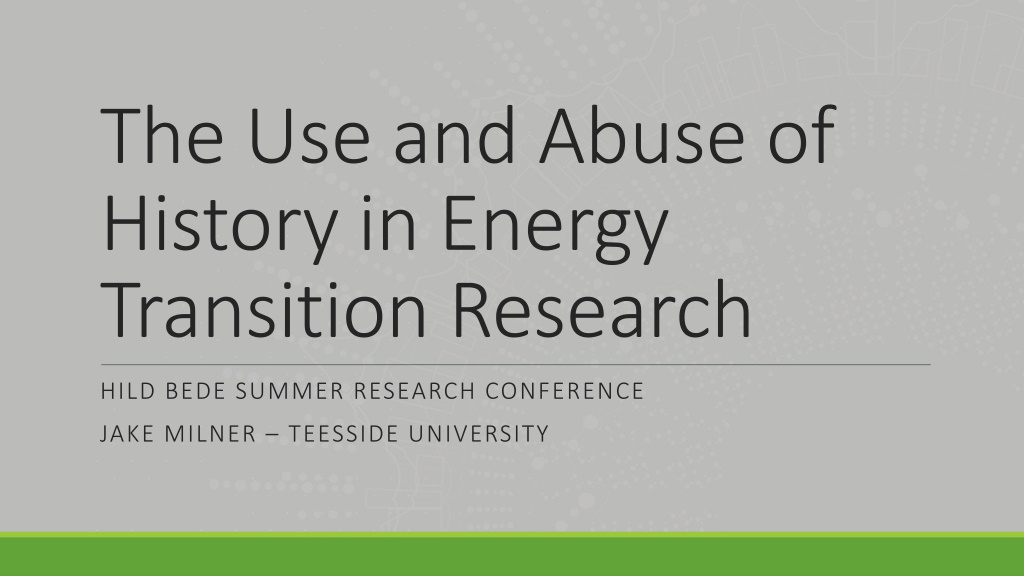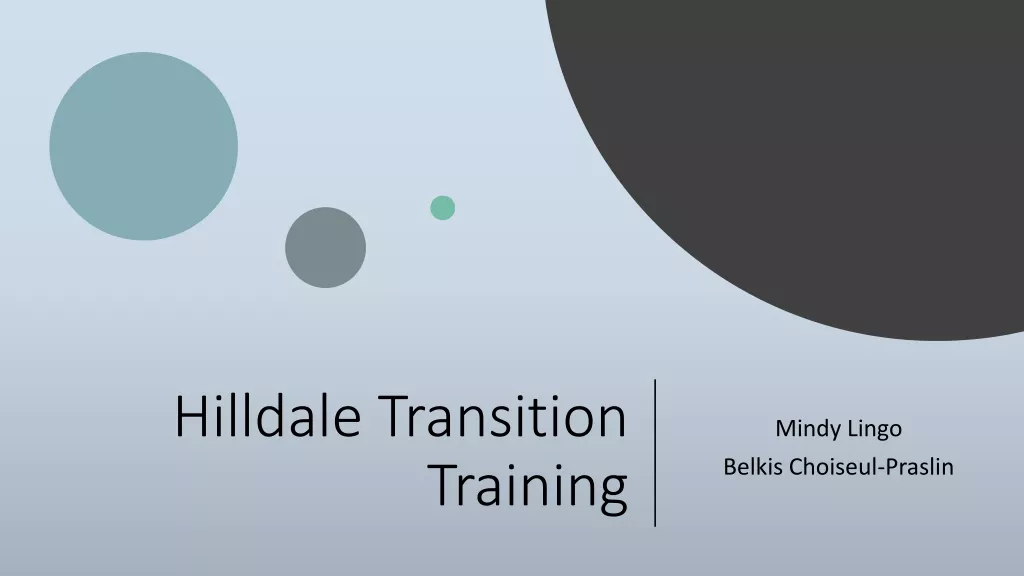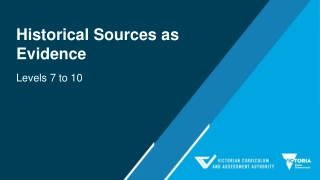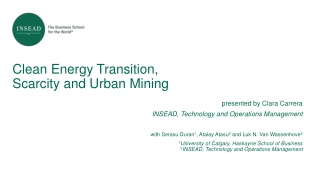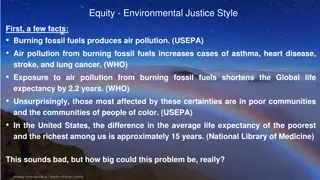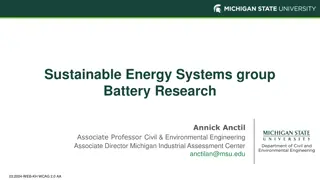Insights into Energy Transition Research and Historical Perspectives
Explore the intersection of energy transition research with historical perspectives, focusing on the importance of just transitions and the evolving relationship between history and sociology. The discussion delves into key concepts like distributive justice, the role of historians and sociologists, and the significance of oral history in interdisciplinary research.
Download Presentation
Please find below an Image/Link to download the presentation.
The content on the website is provided AS IS for your information and personal use only. It may not be sold, licensed, or shared on other websites without obtaining consent from the author. Download presentation by click this link. If you encounter any issues during the download, it is possible that the publisher has removed the file from their server.
Presentation Transcript
The Use and Abuse of History in Energy Transition Research HILD BEDE SUMMER RESEARCH CONFERENCE JAKE MILNER TEESSIDE UNIVERSITY
Energy Transition Research, and the Just Transition CLIMATE CHANGE IS THE MOST PRESSING ISSUE OF OUR TIME. DECARBONISATION AND TRANSITION TO GREEN ECONOMY MUST EMBODY FAIRNESS, EQUALITY, EQUITY, AND INCLUSION. JUST TRANSITION AIMS TO ENSURE NO ONE IS LEFT BEHIND. INFUSED WITH CONCEPTS FROM ENVIRONMENTAL, CLIMATE AND ENERGY JUSTICE. Distributive Justice Procedural Justice Justice as Recognition Restorative Justice Just Transition Framework (Heffron & McCauley, 2018)
The historical turn without historians ? The historical turn without historians ??
Some historians still regard sociologists as people who state the obvious in a barbarous and abstract jargon, lack any sense of place and time, squeeze individuals without mercy into rigid categories and, to cap it all, describe these activities as scientific . Sociologists, for their part, have traditionally viewed historians as amateurish, myopic fact- collectors without system, method or theory, the imprecision of their data base matched only by their incapacity to analyse it. (Burke, 2005)
I would only say that the more sociological history becomes, and the more historical sociology becomes, the better for both (Carr, 1961). There simply are no logical or even methodological distinctions between the social sciences and history (Giddens, 1979). History and Social Science there are many historians who have more in common with sociologists than they do with their disciplinary peers and vice versa (Hart, 1994). history and sociology are effectively the same enterprise. (Abrams, 1980). history and sociology can, and should, still be regarded as significantly different intellectual enterprises (Goldthorpe, 1991).
A crucial source of the differencelies in the nature of the evidence that the two disciplines use - in the fact that historians have for the most part to rely on evidence that they can discover in the relics of the past, while sociologists have the considerable privilege of being able to generate evidence in the present. (Goldthorpe, 1991). What Does History Have to Give? Methodological Disparities & Oral History as a Solution Interdisciplinary research redefines how the mechanics of research is understood. A spectre is haunting the halls of the Academy: the spectre of 'oral history . (Portelli, 1981). Recovering unheard voices. Unreliability of memory Relationship between the past & the present Oral History as Theory
Decarbonisation at the expense of industrial identity? NetZero Teesside to ensure Industrial Cluster becomes the first decarbonized cluster in the UK. Former Steelworks site; a heavily fossil fuel reliant industry. Coal bunker was given listed status, however, was destroyed anyway. our heritage does not lie in a rotting coal bunker Conservative Tees Valley Mayor Ben Houchen The Dorman Long tower is one of UK's best examples of brutalist architecture and a proud symbol of Teesside's industrial heritage. This is just tragic Former Labour Mayoral Candidate Jessie Joe Jacobs Oral History can help understand the local language(s) of injustice and inform prospective transition!
Summary Just Transition Discourse is prevalent in transition literature. Historical turn often fails to interact with historiographical trends This is surprising giving the interdisciplinary progress made between social science and history. Oral History and Oral History Theory can aid in detecting latent languages of injustice, providing potential insight into prospective energy and industrial transitions through the relationship it creates between the past and present.
